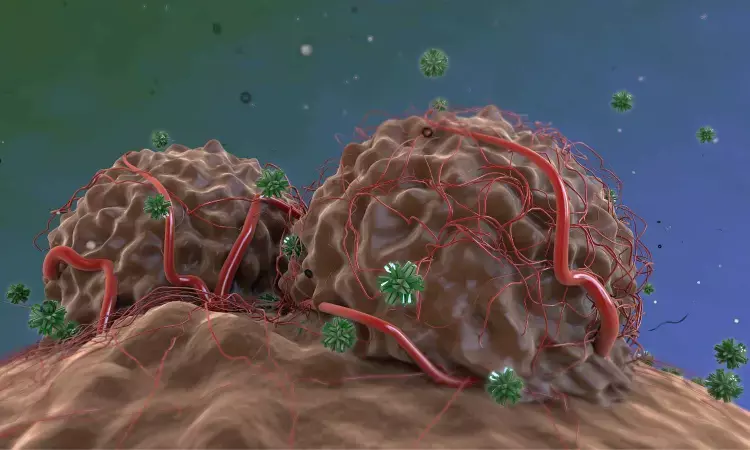- Home
- Medical news & Guidelines
- Anesthesiology
- Cardiology and CTVS
- Critical Care
- Dentistry
- Dermatology
- Diabetes and Endocrinology
- ENT
- Gastroenterology
- Medicine
- Nephrology
- Neurology
- Obstretics-Gynaecology
- Oncology
- Ophthalmology
- Orthopaedics
- Pediatrics-Neonatology
- Psychiatry
- Pulmonology
- Radiology
- Surgery
- Urology
- Laboratory Medicine
- Diet
- Nursing
- Paramedical
- Physiotherapy
- Health news
- Fact Check
- Bone Health Fact Check
- Brain Health Fact Check
- Cancer Related Fact Check
- Child Care Fact Check
- Dental and oral health fact check
- Diabetes and metabolic health fact check
- Diet and Nutrition Fact Check
- Eye and ENT Care Fact Check
- Fitness fact check
- Gut health fact check
- Heart health fact check
- Kidney health fact check
- Medical education fact check
- Men's health fact check
- Respiratory fact check
- Skin and hair care fact check
- Vaccine and Immunization fact check
- Women's health fact check
- AYUSH
- State News
- Andaman and Nicobar Islands
- Andhra Pradesh
- Arunachal Pradesh
- Assam
- Bihar
- Chandigarh
- Chattisgarh
- Dadra and Nagar Haveli
- Daman and Diu
- Delhi
- Goa
- Gujarat
- Haryana
- Himachal Pradesh
- Jammu & Kashmir
- Jharkhand
- Karnataka
- Kerala
- Ladakh
- Lakshadweep
- Madhya Pradesh
- Maharashtra
- Manipur
- Meghalaya
- Mizoram
- Nagaland
- Odisha
- Puducherry
- Punjab
- Rajasthan
- Sikkim
- Tamil Nadu
- Telangana
- Tripura
- Uttar Pradesh
- Uttrakhand
- West Bengal
- Medical Education
- Industry
Belzutifan Shows Promising and Durable Antitumor Activity in Advanced Pheochromocytoma or Paraganglioma: NEJM

A new study published in The New England Journal of Medicine reported that the HIF-2 alpha inhibitor belzutifan has shown significant and lasting antitumor activity in patients with advanced pheochromocytoma and paraganglioma, two rare neuroendocrine cancers usually challenging to treat when metastatic. The research stated that belzutifan provided extended disease control and decreased antihypertensive medication requirements in a lot of patients, which makes it a promising agent against these rare cancers. The study was conducted by Camilo J. and colleagues.
Pheochromocytoma and paraganglioma are unusual neoplasms that originate in chromaffin cells of the adrenal medulla and extraadrenal paraganglia, respectively. In their metastatic presentation, the tumors are generally fueled by dysregulation of the HIF-2α signaling pathway, which causes uncontrollable cell growth and resistance to standard treatment. Traditionally, therapeutic choices for advanced disease have been restricted to surgery, chemotherapy, or radiopharmaceuticals, each with low efficacy and high toxicity. Belzutifan, an oral small-molecule HIF-2α inhibitor, has demonstrated clinical activity in other HIF-driven tumors, including renal cell carcinoma, and thus, interest in its role in treating these uncommon endocrine malignancies was raised.
This phase 2, global, single-group trial enrolled 72 patients with locally advanced or metastatic pheochromocytoma or paraganglioma who were not surgery or curative treatment candidates. All patients received belzutifan 120 mg orally once a day. Patients were treated until disease progression, unacceptable toxicity, or withdrawal by the patient.
The major endpoint was the confirmed objective response rate (complete or partial response) by blinded independent central review. Secondary and of particular interest were duration of response, disease control rate, progression-free survival (PFS), overall survival (OS), safety, and antihypertensive medication use changes. The median follow-up time was 30.2 months (range, 23.3–37.6 months).
Results
• The trial proved that 26% of patients had a confirmed objective response (95% CI, 17–38), and 85% (95% CI, 74–92) realized disease control.
• The 20.4-month median duration of response (95% CI, 8.3 to not reached) indicated durable clinical benefit.
• Median progression-free survival was 22.3 months (95% CI, 13.8 to not reached), and 24-month overall survival was 76%.
• Of the 60 patients receiving antihypertensive therapy at baseline, 19 (32%) had at least a 50% reduction in their total daily dose of at least one antihypertensive medication for at least 6 months after initiating belzutifan.
• These results indicate that belzutifan not only inhibits tumor growth but also relieves hormone-related hypertension, a dominant symptom of these tumors.
In this phase 2 global trial, belzutifan showed substantial and long-lasting antitumor activity in subjects with advanced or metastatic pheochromocytoma and paraganglioma. With an objective response rate of 26%, disease control rate of 85%, and median progression-free survival of 22.3 months, belzutifan provides a promising therapeutic agent for this hard-to-treat patient population. The findings of this study warrant further research into the HIF-2α inhibition as a new strategy in the treatment of rare neuroendocrine tumors.
Reference:
Jimenez, C., Andreassen, M., Durand, A., Moog, S., Hendifar, A., Welin, S., Spada, F., Sharma, R., Wolin, E., Ruether, J., Garcia-Carbonero, R., Fassnacht, M., Capdevila, J., Del Rivero, J., Iliopoulos, O., Huillard, O., Jang, R., Mai, K., Artamonova, E., … LITESPARK-015 Investigators. (2025). Belzutifan for advanced pheochromocytoma or paraganglioma. The New England Journal of Medicine, NEJMoa2504964. https://doi.org/10.1056/NEJMoa2504964
Dr Riya Dave has completed dentistry from Gujarat University in 2022. She is a dentist and accomplished medical and scientific writer known for her commitment to bridging the gap between clinical expertise and accessible healthcare information. She has been actively involved in writing blogs related to health and wellness.
Dr Kamal Kant Kohli-MBBS, DTCD- a chest specialist with more than 30 years of practice and a flair for writing clinical articles, Dr Kamal Kant Kohli joined Medical Dialogues as a Chief Editor of Medical News. Besides writing articles, as an editor, he proofreads and verifies all the medical content published on Medical Dialogues including those coming from journals, studies,medical conferences,guidelines etc. Email: drkohli@medicaldialogues.in. Contact no. 011-43720751


